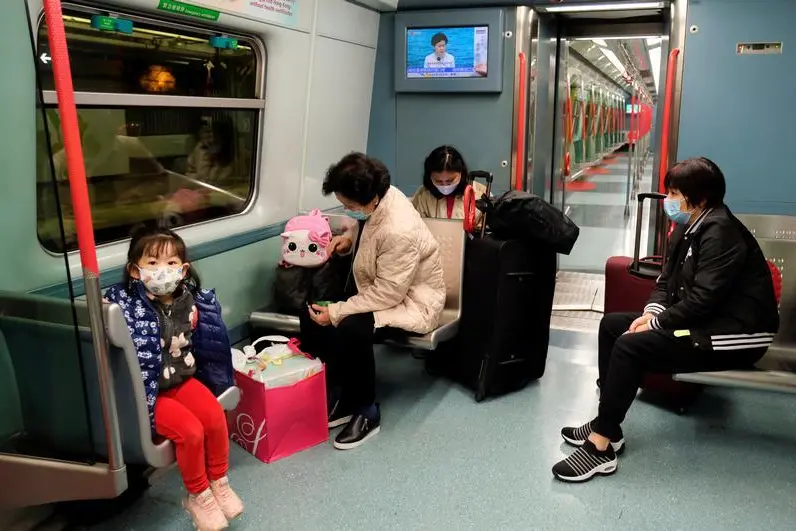PHOTO
HONG KONG - China’s fear could be just as contagious as the coronavirus. Consumers on the mainland and in Hong Kong are hoarding medical supplies, toilet paper and vegetables, leaving shelves empty. Residents are putting their apartment complexes under aggressive self-quarantine; delivery drivers must show their temperature to cautious customers. That suggests many people think things will get worse before they get better. It could become a self-fulfilling prophecy.
Stock-piling staples is a natural reaction to disaster, and not entirely irrational in this instance. Beijing’s decision to prolong the Lunar New Year holiday has kept factories closed, interrupting supply chains. Even so, the panic is disproportionate. Take this week’s run on toilet paper in Hong Kong: shoppers swept the stores for loo roll and tissues, while investors sent manufacturers’ shares soaring. Yet major supplier Vinda International says it can cope with factory closures, and the city’s biggest supermarket chain, Wellcome, told Breakingviews they have plenty of stock.
Consumers don’t seem to believe epidemic containment is imminent, in part because they don’t accept what officials are telling them. A January survey showed three quarters of Hong Kongers distrust the territory’s local government, according to the Hong Kong Public Opinion Research Institute. In China, the early response to the coronavirus was bungled, and medical professionals who flagged the outbreak were initially silenced, aggravating contagion. This will naturally make citizens less likely to believe officials when they declare the outbreak has been brought under control.
The danger is that distrust warps consumer behaviour long into the future. Demand spikes driven by people buying a year’s worth of toilet paper, for example, create shortages and price distortions, and then depress future sales. People may return to work, but if they go straight home, then malls, restaurants and real estate will still suffer an ongoing shortfall in revenue.
In the wake of earlier black swans – such as SARS and the Fukushima nuclear disaster – consumption ill-effects were short-lived. But the speed of the new virus’ spread, and the current weakness in the mainland economy, make it difficult to strike a meaningful comparison. The cure for the coronavirus remains elusive: the same could be true for its financial aftereffects.
CONTEXT NEWS
- China's Hubei province on Feb .7 reported 69 new deaths from the coronavirus, taking the total in China to over 600. It also reported nearly 2,500 new cases, taking the total in China to over 30,000, according to state television.
- Consumers in mainland China and Hong Kong have been aggressively stocking up on medical supplies and staples including face-masks, hand sanitiser, toilet paper and rice in response to the coronavirus outbreak, leading to occasional outages.
- Three quarters of Hong Kongers distrust the territory’s local government, according to a January survey by the Hong Kong Public Opinion Research institute.
(Editing by Pete Sweeney and Sharon Lam) ((katrina.hamlin@thomsonreuters.com; Reuters Messaging: katrina.hamlin.thomsonreuters.com@reuters.net))





















